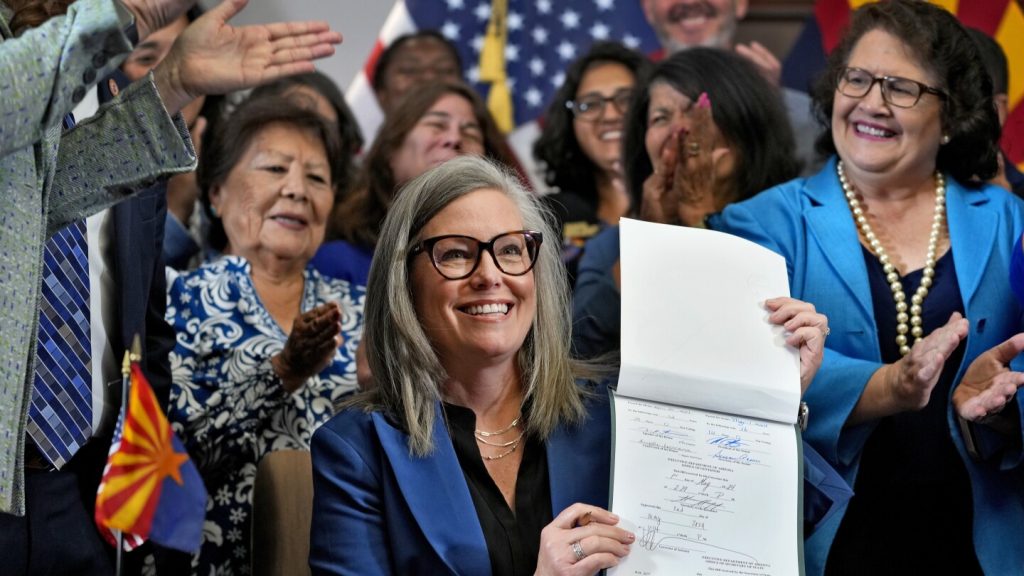Arizona’s Supreme Court has granted the state’s attorney general an additional 90 days to decide on further legal action regarding a 160-year-old near-total ban on abortion. The court’s order allows Attorney General Kris Mayes more time to determine whether to take the case to the U.S. Supreme Court. The decision leaves in place a more recent law that legalizes abortion up to 15 weeks of pregnancy. Mayes expressed gratitude for the order and emphasized the importance of allowing doctors to provide medical care based on their professional judgment.
In April, Arizona’s Supreme Court voted to reinstate the older law, which provides no exceptions for rape or incest and only allows abortions if the mother’s life is in jeopardy. The majority opinion indicated that doctors could face prosecution and potential prison sentences of up to five years if convicted. Following the court’s decision, the state Legislature narrowly voted to repeal the decades-old ban, but the repeal will not come into effect until 90 days after the conclusion of the current annual session. It remains unclear if there will be a transitional period during which the older ban could still be enforced before the repeal takes effect.
The Alliance Defending Freedom, an anti-abortion group defending the ban, reiterated its commitment to fighting against the repeal despite the recent delay. The group’s senior counsel, Jake Warner, stated that the pro-life law in Arizona has protected unborn children for over a century, and they will continue working to support and provide healthcare for families in the state. Planned Parenthood Arizona CEO Angela Florez welcomed the court’s decision, emphasizing the organization’s dedication to providing abortion care up to 15 weeks of pregnancy and ensuring patients have access to these services within the legal timeframe.
The ongoing legal battle over Arizona’s abortion laws underscores the deeply entrenched divide in the state and the country regarding reproductive rights. The debate over abortion continues to be a highly contentious and polarizing issue, with advocates on both sides advocating fiercely for their positions. The delay in the repeal of the near-total ban highlights the complex legal and ethical considerations surrounding abortion, prompting further discussions about women’s rights, healthcare, and the role of government in regulating reproductive health.
As the attorney general deliberates on the next steps in this legal battle, the fate of Arizona’s abortion laws remains uncertain. The decision regarding whether to take the case to the U.S. Supreme Court could have far-reaching implications for abortion rights in the state and potentially across the country. The 90-day extension granted by the Arizona Supreme Court provides more time for stakeholders to engage in advocacy, legal arguments, and public debate on this critical issue that affects the lives of countless individuals and families. The outcome of this case will shape the future of reproductive healthcare and access to abortion services in Arizona and beyond.


